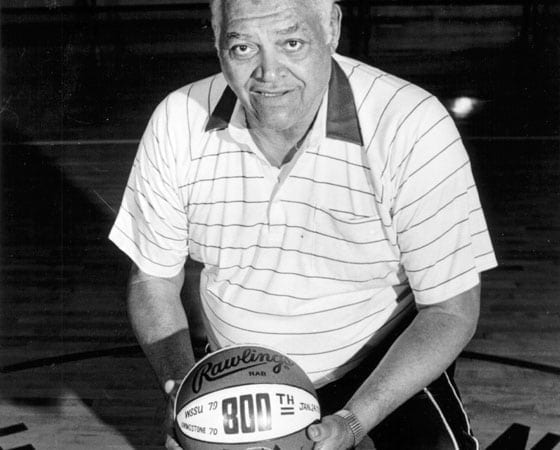
SPRINGFIELD, Mass. — Savannah State coach Teddy Wright was so good that legends grew up around him. Like the time he supposedly split his squad in two, sending half to play a game in the Southwest and the other half to play against a school on East Coast.
“He would play two games in the same night, and win both of them,” said Ben Jobe, who like Wright, coached at historically black colleges and universities. “He was that good.”
Jobe wasn’t bad either. He won 524 games as a college basketball coach, brought two teams to the National Association of Intercollegiate Athletics (NAIA) national finals and received numerous coach-of-the-year awards. But like Wright and many others who made their mark at traditionally black schools, he has not been recognized by the Basketball Hall of Fame.
That could soon change.
Mannie Jackson, chairman of the hall’s board of directors, is putting together a committee to review the Hall of Fame credentials of players and coaches from historically black schools, particularly those who played and coached during the era of segregation.
“The committee will take a look back, take a look at these players, make sure we have not missed anyone in terms of Hall of Fame recognition, and also those who may not be quite Hall-of-Fame caliber, but should be recognized for what they did for the game,” said John Doleva, the hall’s president and chief executive officer.
The committee will include Hall of Famers and other former players and coaches. They’ll be asked to consider people like Wright, whose teams got little media attention and whose records are difficult to document. For instance, Savannah State knows Wright won at least 173 games from 1948-62 but records are missing for five seasons during that time.
“We are planning to have some celebration, some recognition for those players and coaches probably in 2009, perhaps as early as enshrinement weekend,” Doleva said.
There has been a push for the Hall of Fame to do something since ESPN aired a documentary in March, “Black Magic,” that focused on basketball at historically black schools.
The producers of “Black Magic” and groups such as the Black Coaches and Administrators (BCA) and the NBA Retired Players Association, began writing letters to Jackson urging him to help get more of these coaches and players enshrined.
“We’re talking about great accomplishments from people who had to endure real racism, exclusion from mainstream tournaments, no mainstream press coverage,” said “Black Magic” director Dan Klores.
Georgia Tech coach Paul Hewitt, president of the BCA, points out that Major League Baseball has twice admitted previously excluded players from the Negro Leagues into its Hall of Fame.
“The legal and psychological system of segregation has, of course, had a profound effect upon all of us — it was designed to exclude,” Hewitt wrote to Jackson. “Now, in 2008, we ask for your assistance to right this wrong and to include.”
Only a few players and coaches from traditionally black schools are in the Hall of Fame, including West Virginia State’s Earl Lloyd, who became the first black player in the NBA after leading his school to a 30-0 season in 1947-48.
There also is John McLendon, who won three NAIA national titles at Tennessee State during the 1950s. He also coached in what is known as the “Secret Game” in March 1944, when his squad from the North Carolina College for Negroes beat a highly touted, all-white team of former college players attending Duke’s medical school, 88-44, in an empty gym.
Earl “the Pearl” Monroe, who averaged over 41 points at Winston-Salem State in 1967, and his coach there, Clarence “Big House” Gaines, also are Hall of Famers.
But only Gaines and McLendon are recognized solely for their accomplishments at historically black schools, Klores said. And McLendon went in as a “contributor to the game,” despite winning more than 500 games as a coach.
“That’s pathetic, ridiculous,” said Jobe, who was a McLendon disciple. “The man’s a coach. He was the greatest coach of us all and should be in as a coach. They need to right that wrong.”
(Associated Press)


![Banner [Virtual] Art Gallery](https://baystatebanner.com/wp-content/uploads/2024/04/Cagen-Luse_Men-at-store-e1713991226112-150x150.jpg)



